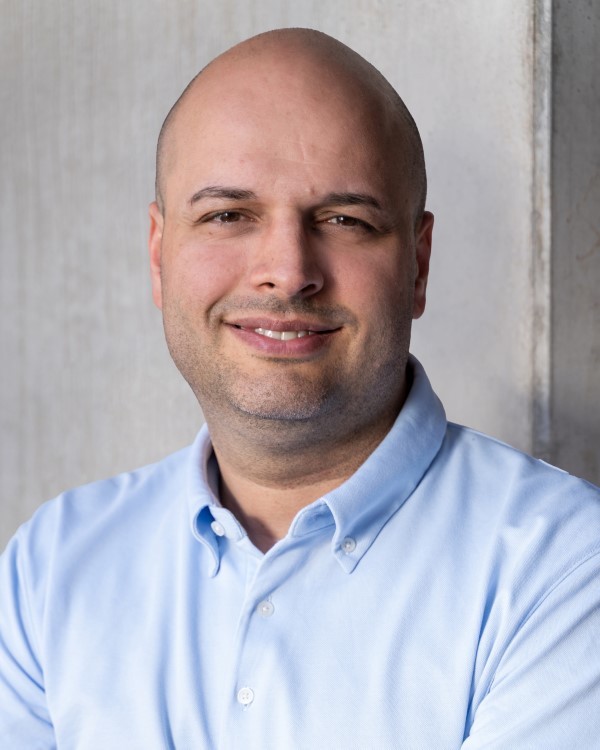In an interview with corporate learning expert Alexander Iliasa, we address the questions:
Alexander Iliasa: New (Corporate) Learning is, first of all, due to the term "new", always a fluid and individual concept or a snapshot from the viewpoint of the observer. The same applies to its conceptual origin, "New Work". Just a few years ago, for example, it did not even include the topics of remote work, home office or hybrid work.
So let's take a look at what exactly New Learning can mean for a modern L&D (Learning & Development) company in 2023.
According to my observations, New Learning now comprises the following four core elements:
Alexander Iliasa: Since there is a wide variation of good as well as bad examples of teaching and learning quality for both sides of this question, we should focus on the ideal variants of both types of learning for the sake of simplification.
Then, the first thing that stands out here is the challenge that a school class is much more homogeneous than a group of participants in everyday business life. In everyday course life, a 16-year-old trainee and a 65-year-old managing director meet here. This has to be taken into account, for example, in the technical course structure and within the framework of the interactivity options.
In addition, corporate learning is subject to increased time pressure, often even "drier" learning topics, and the rapidly decreasing half-life of knowledge in a highly competitive environment.
Alexander Iliasa: In Germany, around 90% of all company inquiries that reach me are dealing with the topics of learning platforms & e-learning for the first time, which of course does not mean that 90% of companies are not yet active here.
It does mean, however, that the L&D maturity level of German companies lags behind those of other European companies. This also includes the use of cloud products, even if the pandemic acted as a turbo here.
For the already experienced users of digital learning platforms and content formats, social learning is now increasingly finding its way into companies. On the one hand, the focus here is on the technical integration of learning into the digital workplace such as intranets, collaboration platforms, etc. ("learning in the flow of work"). On the other hand, the content here is about the integration of likes, comment functions, sharing, recommendations and interesting learning media (e.g. articles, videos, TED talks, etc.).
Alexander Iliasa: More and more providers are facing the challenge of meeting the two requirements of New Learning in terms of granular skills management and democratic course creation.
Here we need answers to the questions:
Alexander Iliasa: Early in my career, in retail, I experienced week-long onboarding in theory (before even hitting the floor), paid trips for creative blueprints, brainstorming & co. and called-in customer service gurus for daytime training.
Twenty years later, competition in this industry has increased tremendously and margins have become much more fragile. Nevertheless, systematic onboarding and sustainable staff development is needed more than ever!
However, the industry, the margin and the market position sometimes dictate how efficiently or digitally this must be used. So I can clearly see that budgets are increasingly flowing into #digitalfirst. Those who can afford it then supplement the learning program selectively with analog and synchronous activities such as coaching and seminars.
Here, system and content are mutually dependent and the question of "make or buy?" must be answered individually, as always. From a macro perspective, however, the constant expansion of the range of broad-based learning platforms and content means that it makes more and more sense to buy the right one ready-made.
Alexander Iliasa: The trend toward "soft" training topics will continue in 2023. Topics such as inclusion, diversity, sustainability, and resilience will gradually find their way into more and more course catalogs.
A new addition here, I also see the entrepreneurial need for politically influenced education about anchored democracy, reliable alliances and free markets.
On the hard skills side, AI and machine learning will make their breakthrough. This is where content providers like mybreev are especially needed to break down these hyper-topics to different levels of complexity and application areas. A #onesizefitsall is not the right approach here.
I personally find the development of content formats and distribution media even more exciting. When will commercial employees finally be allowed to participate in e-learning?
Who dares to take the step of providing the German industrial backbone with the necessary hardware and software?
This would then also finally be the starting signal for the actual establishment of mobile learning in the corporate sector and, along with it, a very interesting expansion of our playground.
Alexander Iliasa works as a product specialist for the innovative LXP provider (learning experience platform) eloomi from Copenhagen. He advises and guides small to medium sized companies in solving their L&D challenges and training internal employees and/or external partners & customers. In 2020, Iliasa launched the New Learning Blog.

You’re planning an e-learning campaign with high class content? Let us support you creating a training that really sticks.
Uwe Röniger
CEO mybreev